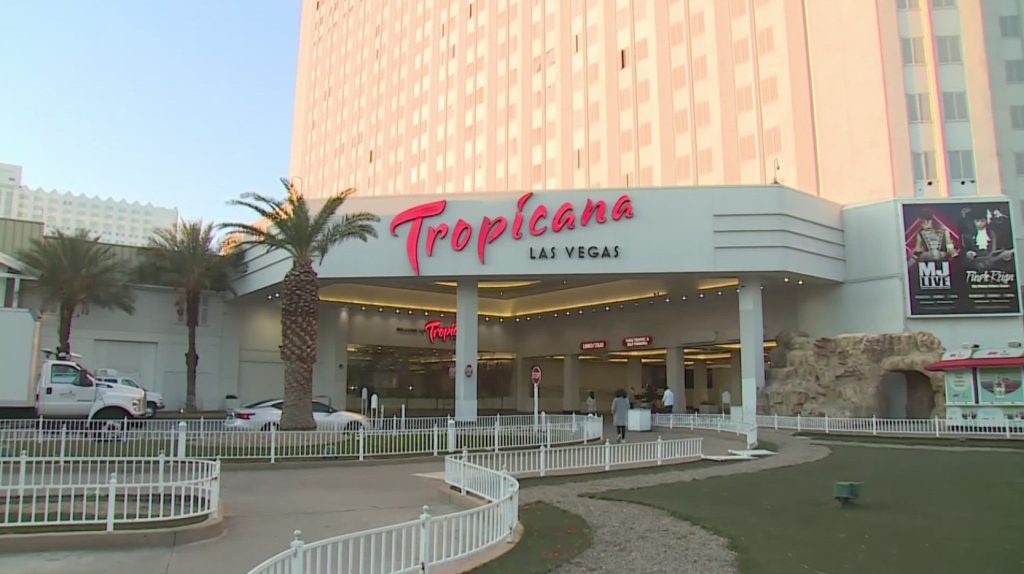Tropicana Casino: The Tropicana Casino, one of the most recognized names in the American casino industry, has a rich history that stretches across decades. Known for its bright lights, grand hotels, and bustling casino floors, Tropicana has changed hands multiple times. But as of 2025, Tropicana is owned by Bally’s Corporation, with key real estate holdings managed by Gaming and Leisure Properties, Inc. (GLPI).
Tropicana Casino: Let’s take a closer look at how this iconic casino is structured today, and how it got here.
Tropicana Casino: Historical Overview
Tropicana Casino: The Tropicana brand dates back to the 1950s and has gone through various ownership changes. Here’s a brief timeline:
Key Milestones in Tropicana’s History
| Year | Event |
|---|---|
| 1957 | Original Tropicana Hotel & Casino opens in Las Vegas. |
| 1980s-90s | Ownership changes hands multiple times during the casino boom and regulatory changes. |
| 2007 | Columbia Sussex takes over Tropicana Entertainment. |
| 2010 | Tropicana Entertainment LLC emerges from bankruptcy under Carl Icahn. |
| 2018 | Eldorado Resorts acquires Tropicana Entertainment for $1.85 billion. |
| 2020 | Eldorado completes its merger with Caesars Entertainment. |
| 2021 | Bally’s Corporation purchases Tropicana Evansville from Caesars. |
| 2022 | Bally’s agrees to acquire Tropicana Las Vegas operations. |
| 2023-2024 | Sale-leaseback arrangements finalized with GLPI. |
Who Owns What? The Current Structure
Bally’s Corporation – Operational Ownership
Tropicana Casino: As of now, Bally’s Corporation owns and operates the Tropicana Casino brand. Bally’s, a growing name in the U.S. gambling industry, has been acquiring regional casinos and digital betting platforms. They’ve rebranded several properties under the Bally’s name to build a nationwide presence.
Gaming and Leisure Properties, Inc. – Real Estate Ownership
Gaming and Leisure Properties, Inc. (GLPI), a real estate investment trust (REIT), owns the land and physical property of many casinos, including Tropicana locations. Bally’s pays rent to GLPI for operating the casino on GLPI-owned property.
Ownership Breakdown (2025)
| Component | Owned By | Role |
|---|---|---|
| Tropicana Brand | Bally’s Corporation | Operates casino, manages hotel, and gaming services |
| Land & Building | GLPI (Gaming and Leisure Properties, Inc.) | Owns real estate, leases it to Bally’s |
| Licenses and Gaming Rights | Bally’s Corporation | Holds state-approved gaming licenses |
| Employees and Staff | Bally’s Corporation | Handles HR, operations, customer service |
| Digital and Online Gaming | Bally’s Interactive (subsidiary) | Manages online casino and sportsbook platforms |
About Bally’s Corporation
Bally’s started as a small regional casino operator and expanded aggressively through acquisitions. The company now owns over 15 casinos in the U.S. and operates online platforms in several states. Bally’s has focused on becoming a vertically integrated gaming company with a mix of land-based and digital gaming.
Bally’s Corporation – At a Glance
| Metric | Data (2025) |
|---|---|
| Headquarters | Providence, Rhode Island |
| CEO | Robeson Reeves |
| Employees | ~10,000 |
| Casinos Owned | 15+ |
| Online Markets | 8 U.S. states (and growing) |
| Publicly Traded | Yes (NYSE: BALY) |
Future Developments: Tropicana Site and the Oakland A’s
In recent developments, there’s been speculation about the Oakland Athletics MLB team building a new stadium on the Tropicana Las Vegas site. This could lead to the demolition or redevelopment of the current Tropicana facility. Bally’s and GLPI are negotiating the future of the site, balancing entertainment, hospitality, and sports business interests.
Final Thoughts
Tropicana is more than just a casino—it’s a brand that has evolved with the American gaming industry. While it retains its iconic name, the current ownership structure reflects the modern business landscape of casinos: REITs own the land, and operators manage the gaming. This model allows companies like Bally’s to scale quickly while maintaining cash flow for expansion.
As the industry continues to evolve—especially with the rise of online betting and the integration of sports facilities—the fate of Tropicana remains a fascinating case study in American corporate strategy.

